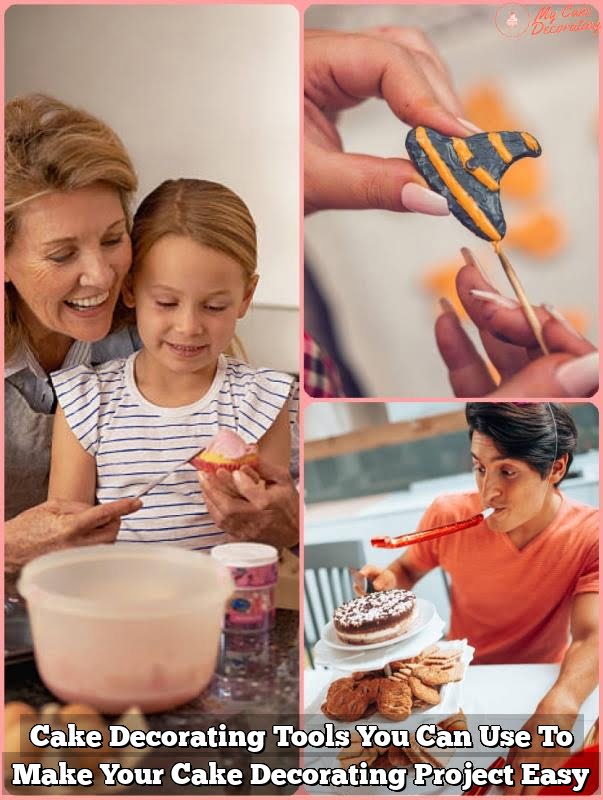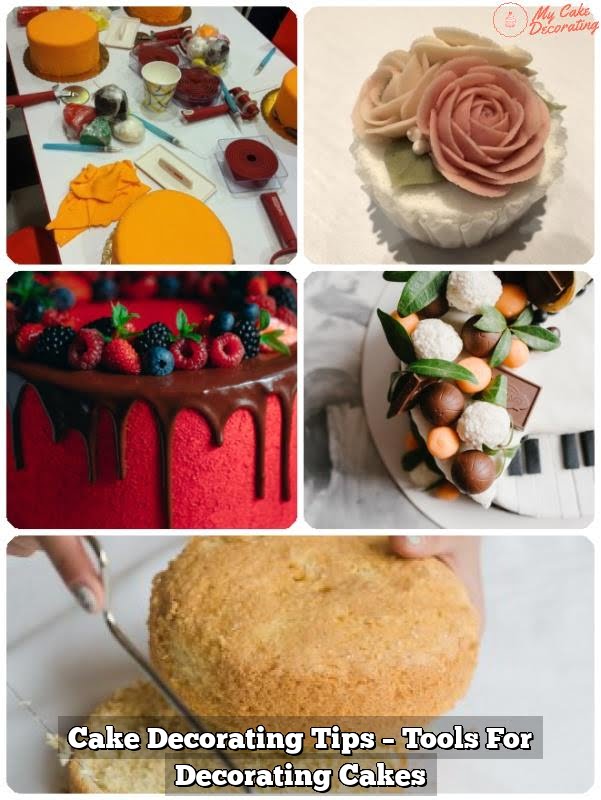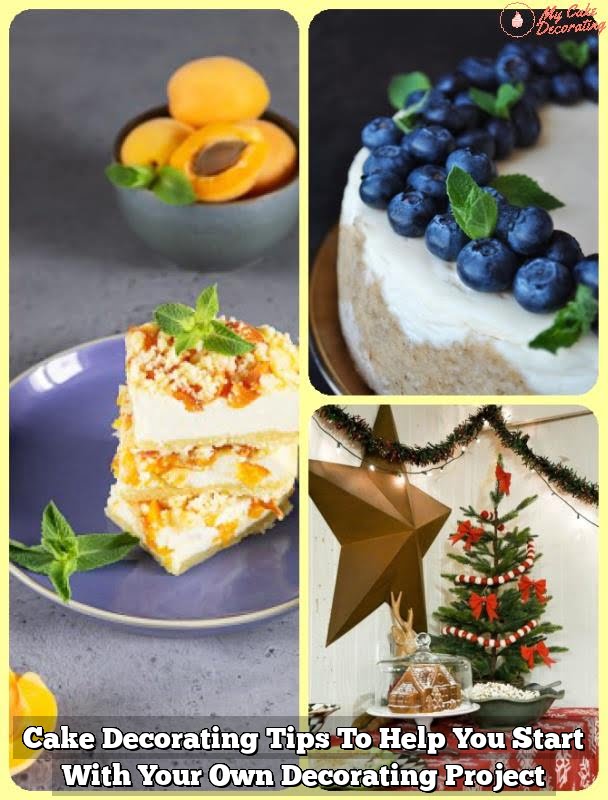Are you passionate about cake decorating and interested in sharing your skills with others? If so, becoming a cake decorating teacher may be the perfect career path for you. As the demand for beautifully decorated cakes continues to grow, there is an increasing need for qualified individuals to teach the art of cake decorating to aspiring bakers and decorators.
In order to become a successful cake decorating teacher, it is essential to possess the right qualifications and experience. This includes obtaining proper education and training in cake decorating, gaining practical hands-on experience through internships or apprenticeships, building a strong portfolio of your work, and developing effective teaching skills and strategies.
Additionally, networking within the cake decorating industry and staying up-to-date with current trends and techniques are also crucial for both finding job opportunities and continuing professional growth as a cake decorating teacher. This article will cover all these aspects in detail, providing valuable insight into how to become a successful cake decorating teacher in today’s growing industry.
Whether you are just starting out or looking to advance your career, this guide will help you take the necessary steps towards becoming a sought-after cake decorating teacher.
Qualifications and Experience Needed to Teach Cake Decorating
Becoming a cake decorating teacher requires a combination of specific qualifications and practical experience in the field. Most institutions and educational programs look for individuals with a strong background in the culinary arts, particularly in the area of baking and pastry arts.
A degree in culinary arts, baking and pastry, or a related field is often a minimum requirement for teaching positions. Additionally, having advanced training or certification in cake decorating, such as from professional organizations like the American Culinary Federation (ACF) or the Retail Bakers of America (RBA), can significantly strengthen your qualifications as a potential cake decorating instructor.
In terms of experience, many institutions prefer candidates with substantial work experience in the cake decorating industry. This experience can be gained through working in bakeries, pastry shops, or other food service establishments where cake decorating skills are utilized on a regular basis. In addition to professional experience, having a strong portfolio of original cake decorating work can showcase your skills and creativity to potential employers when applying for teaching positions.
Furthermore, obtaining teaching experience or completing courses in education can also enhance your prospects as a cake decorating teacher. Pursuing coursework in instructional design, curriculum development, and teaching methodologies can provide valuable insight into how to effectively teach and communicate complex techniques to students. The ability to convey knowledge and skills clearly is an essential aspect of being an effective cake decorating instructor.
| Qualification | Requirements |
|---|---|
| Degree in Culinary Arts/Baking & Pastry | Minimum requirement for teaching positions |
| Certification from Professional Organizations | Strengthens qualifications |
| Professional Experience | Work in bakeries/pastry shops to gain hands-on skills |
| Teaching Experience/Education Courses | Enhances teaching prospects |
Choosing the Right Cake Decorating Education Program
When it comes to pursuing a career as a cake decorating teacher, choosing the right education program is crucial in preparing you for the role. The first step in this process is to research and identify reputable institutions or organizations that offer formal training and education in cake decorating. Look for programs that provide comprehensive instruction on different techniques, tools, and styles of cake decorating.
One option to consider is enrolling in a culinary arts or pastry arts program that includes coursework specifically focused on cake decorating. Another alternative is to seek out specialized cake decorating schools or academies that offer certificate or diploma programs tailored to aspiring cake decorators. It’s important to evaluate the curriculum, faculty qualifications, and hands-on learning opportunities when comparing different education programs.
In addition to formal education programs, online courses and workshops can also be valuable resources for enhancing your skills and knowledge in cake decorating. These flexible learning options allow you to learn at your own pace and explore specific areas of interest within the field. As you research your options, take into consideration the cost of the program, its duration, and any additional resources or support provided to students.
| Education Program | Considerations |
|---|---|
| Culinary/Pastry Arts Program | Comprehensive instruction on different techniques and styles of cake decorating |
| Specialized Cake Decorating Schools/Academies | Evaluate curriculum, faculty qualifications, and hands-on learning opportunities |
| Online Courses/Workshops | Flexible learning options with consideration of cost, duration, and additional resources |
Gaining Practical Experience Through Internships and Apprenticeships
After completing a cake decorating education program, gaining practical experience through internships and apprenticeships is crucial for becoming a successful cake decorating teacher. Here are the steps to take in order to gain practical experience in this field:
1. Research and Apply for Internships: Look for local bakeries, cake shops, or catering companies that offer internship opportunities for aspiring cake decorators. Reach out to these establishments and inquire about internship openings. This hands-on experience will provide valuable insight into the day-to-day operations of a professional cake decorating business.
2. Seek Apprenticeship Opportunities: Consider apprenticing under an experienced cake decorator or baker to further enhance your skills. An apprenticeship allows you to work closely with a seasoned professional, learning advanced techniques and gaining real-world experience in creating custom cakes.
3. Volunteer at Events: Offer your services as a volunteer at events such as weddings, birthdays, or other special occasions where cake decorating is involved. This will not only allow you to practice your skills in a variety of settings but also help you make connections within the industry.
Throughout these experiences, it’s important to observe how different professionals approach their work, ask questions, and seek feedback on your own projects in order to continue developing your skills as a cake decorator. By gaining practical experience through internships and apprenticeships, individuals can not only hone their craft but also develop the expertise necessary to become effective cake decorating teachers.
Building a Strong Portfolio of Cake Decorating Work
One way to build your portfolio is by taking on various cake decorating projects for different occasions such as weddings, birthdays, anniversaries, and corporate events. It’s also beneficial to participate in cake decorating competitions or collaborate with local bakeries or caterers to create display cakes for their storefronts or events.
Additionally, documenting the process of creating each cake with photographs or videos can provide valuable insight into your skills and techniques. This documentation can be included in your portfolio to showcase your abilities in planning, execution, and problem-solving throughout the cake decorating process.
Another important aspect of building a strong portfolio is maintaining an organized and professional presentation. When compiling your work for the portfolio, it’s essential to photograph each cake from multiple angles and present them in a clean layout with detailed descriptions of the design concepts and techniques used.
Utilizing high-quality images that capture the intricate details of your creations will enhance the overall appeal of the portfolio. By continuously updating and refining your portfolio with new and impressive cake designs, you can effectively highlight your growth as a cake decorator and position yourself as a credible candidate for teaching positions within the industry.
Networking and Building Connections Within the Cake Decorating Industry
Engaging With Professional Associations
One way to build connections within the cake decorating industry is by engaging with professional associations. These organizations often have networking events, workshops, and conferences where you can connect with other professionals in the field. By becoming a member of these associations, you can stay updated on industry trends, learn from experienced decorators, and even find potential job opportunities.
Attending Industry Events
Attending industry events such as trade shows, competitions, and expos can also provide valuable networking opportunities. These events bring together cake decorators, suppliers, and enthusiasts from all over, creating a conducive environment for building connections. Take the time to interact with fellow decorators, share your work, and exchange contact information to stay in touch after the event.
Utilizing Social Media
In today’s digital age, social media platforms play a crucial role in connecting professionals within the cake decorating industry. Joining online communities, participating in relevant Facebook groups or Instagram challenges, and showcasing your work on platforms like Pinterest can help you establish connections with other cake decorators. Engage with others by commenting on their posts, offering advice or assistance when needed, and sharing your own expertise.
By actively networking and building connections within the cake decorating industry, you can increase your visibility, learn from others in the field, and create potential opportunities for teaching positions. Whether it’s through professional associations or online platforms, making an effort to connect with other professionals will ultimately contribute to your success as a cake decorating teacher.
Developing Effective Teaching Skills and Strategies
As a cake decorating teacher, it is essential to develop effective teaching skills and strategies to effectively impart knowledge and skills to your students. Here are some key considerations and steps for honing your abilities as a cake decorating instructor:
1. Understand different learning styles: It’s important to recognize that not all students learn in the same way. Some may be visual learners, while others may learn best through hands-on activities. Take the time to understand the various learning styles and tailor your teaching methods to accommodate different preferences.
2. Create engaging lesson plans: When planning your classes, focus on creating interactive and engaging lesson plans that will keep your students interested and motivated. Incorporate a variety of techniques, such as demonstrations, hands-on practice, group activities, and multimedia presentations to make your classes dynamic and interesting.
3. Provide constructive feedback: One of the most important roles of a teacher is to provide constructive feedback to help students improve. Learn how to give feedback in a positive and encouraging manner while also providing actionable suggestions for enhancement.
By developing these essential teaching skills and strategies, you can ensure that you are effectively preparing your students for success in their cake decorating endeavors.
Overall, becoming a cake decorating teacher requires dedication, patience, skill development, passion for teaching others about this delightful craft so they can cultivate their own talents with cakes as well.
Finding Job Opportunities and Applying for Cake Decorating Teaching Positions
After gaining the necessary qualifications, experience, and skills, the next step in becoming a cake decorating teacher is to find job opportunities and apply for teaching positions. While the demand for cake decorating teachers is growing, it is essential to know where and how to look for these opportunities.
Exploring Different Job Options
One of the first steps in finding job opportunities as a cake decorating teacher is to explore different options available. These may include positions at culinary schools, community colleges, vocational training centers, or even private businesses offering cake decorating classes. It’s important to research and understand the requirements and expectations of each type of institution or organization before applying.
Networking Within the Industry
Building connections within the cake decorating industry can also provide valuable leads on job openings. Attending industry events, workshops, and conferences can help aspiring teachers meet potential employers and make important connections. Joining professional organizations related to baking and pastry arts can also be beneficial as they often have job boards or networking events specifically for members.
Preparing Application Materials
When applying for cake decorating teaching positions, it’s crucial to prepare strong application materials. This may include a well-crafted resume highlighting relevant experience and skills, a cover letter expressing genuine interest in teaching, and a portfolio showcasing examples of your cake decorating work. Tailoring these materials to each specific job opportunity can greatly enhance one’s chances of securing an interview.
By actively seeking out job opportunities, leveraging professional connections, and putting together compelling application materials, individuals interested in becoming cake decorating teachers can increase their chances of landing fulfilling teaching positions within this creative and growing field.
Continued Professional Development and Growth as a Cake Decorating Teacher
As the demand for cake decorating teachers continues to grow, it is essential for professionals in this field to focus on continued professional development and growth. This involves staying updated with the latest trends and techniques in cake decorating, as well as honing teaching skills to effectively impart knowledge to students. This section of the article will discuss the importance of ongoing learning and development for cake decorating teachers.
One way to ensure continued growth as a cake decorating teacher is to seek out advanced education programs or specialized courses that focus on niche areas within the field. This could include mastering intricate sugar flower techniques, perfecting advanced icing methods, or delving into the art of sculpting edible cake decorations. By expanding one’s skill set, cake decorating teachers can offer more comprehensive expertise to their students.
Networking within the cake decorating industry is another crucial aspect of professional development. Connecting with fellow decorators, pastry chefs, and industry professionals can provide valuable insights and opportunities for collaboration. Attending industry events, workshops, and conferences can also contribute to ongoing growth by exposing teachers to new ideas and perspectives within the field.
Moreover, staying abreast of technological advancements in cake decorating tools and equipment is essential for continued professional development. Embracing new technology and innovative products not only enhances a teacher’s own practice but also demonstrates a commitment to staying current in an ever-evolving industry. Ultimately, embracing lifelong learning and seeking out opportunities for growth are vital components of becoming a successful and effective cake decorating teacher.
Frequently Asked Questions
What Education Do You Need for Cake Decorating?
Cake decorating typically doesn’t require a formal education, but many people choose to pursue culinary arts or pastry arts programs to gain fundamental skills and knowledge. These programs often cover baking techniques, food safety, and design principles that are essential for cake decorating.
What Qualifications Do You Need to Be a Cake Decorator?
The qualifications needed to be a cake decorator vary depending on the employer or the specific role. Some employers may require completion of a culinary arts or pastry arts program, while others may prioritize hands-on experience and a strong portfolio of work.
Creativity, attention to detail, and the ability to work efficiently under pressure are also important qualifications for this profession.
How Long Does It Take to Become a Professional Cake Decorator?
The time it takes to become a professional cake decorator can vary greatly. Some individuals may enter the field after completing a culinary or pastry arts program, which typically takes 1-2 years.
Others may start as an apprentice or entry-level assistant in a bakery and gain experience over several years before becoming proficient enough to be considered professional cake decorators. Ultimately, the path to becoming a professional cake decorator depends on individual circumstances, goals, and opportunities for hands-on experience.

Welcome to my blog about home and family. This blog is a place where I will share my thoughts, ideas, and experiences related to these important topics. I am a stay-at-home mom with two young children. I hope you enjoy reading it! and may find some helpful tips and ideas that will make your home and family life even better!





